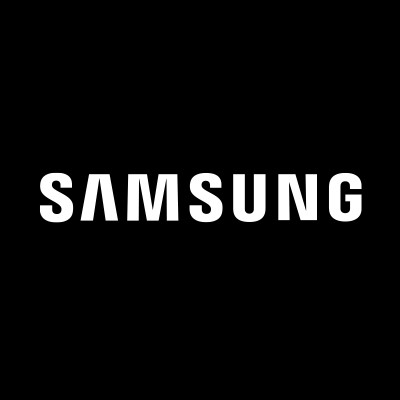Groq's AI Chip Dominance: Valuation Soars to $6.9 Billion
September 18, 2025, 3:32 am

Location: United States, California, San Francisco
Employees: 10001+
Founded date: 1938
Total raised: $6.4B
Groq secured $750 million, boosting its valuation to $6.9 billion. This surge reflects robust investor confidence in its AI inference chips, crucial for high-speed, low-cost AI compute. The funding solidifies Groq's role in the "American AI Stack" and fuels global expansion. Its LPU technology addresses the critical shift towards inference in AI hardware, challenging industry giants. This marks a pivotal moment for AI infrastructure development. Investors bet big on Groq's disruptive approach to artificial intelligence processing.
Groq stands as a formidable force in the artificial intelligence sector. The chip startup recently announced a massive $750 million funding round. This new investment propelled its valuation to $6.9 billion. The figure more than doubles its previous $2.8 billion valuation from just a year prior. This financial leap underscores intense investor belief in Groq's specialized AI hardware.
The capital injection was led by Disruptive, a Dallas-based growth investment firm. Disruptive contributed nearly $350 million to the round. Major institutional investors also participated. Blackrock, Neuberger Berman, and Deutsche Telekom Capital Partners made significant commitments. A large US-based West Coast mutual fund manager also joined. Existing backers like Samsung, Cisco, D1, Altimeter, 1789 Capital, and Infinitum continued their support. This diverse investor base highlights widespread confidence in Groq's trajectory and its pioneering role in AI.
Groq's core innovation lies in its AI inference chips. These chips optimize pre-trained artificial intelligence models. The industry is rapidly shifting its focus. Early AI development emphasized training-centric chips. Now, the demand for inference-focused hardware dominates. Inference involves deploying AI models to perform tasks. It requires immense speed and efficiency. Groq's Language Processing Unit (LPU) architecture delivers this. It offers unmatched capacity and low operational costs.
The company's technology is vital for the modern AI landscape. It allows developers and Fortune 500 companies to build and scale AI solutions faster. Groq's infrastructure powers more than two million developers globally. Its presence extends across North America, Europe, and the Middle East through existing data centers. This global footprint demonstrates its widespread adoption.
Jonathan Ross founded Groq in 2016. He previously worked as an engineer at Alphabet. Ross emphasizes inference as the defining aspect of the current AI era. He asserts Groq builds American infrastructure to deliver high-speed, low-cost AI. This vision resonates with national strategic priorities. The White House recently issued an executive order. It promotes the export of American AI technology. Groq's American-built inference infrastructure plays a central role in this global deployment strategy.
The shift to inference hardware is critical. Training large language models requires massive compute power. However, running these models in real-world applications demands different capabilities. Inference needs speed, low latency, and cost-effectiveness at scale. Groq's LPU is purpose-built for these demands. It processes complex AI workloads rapidly. This capability is essential for everything from real-time recommendations to advanced natural language processing.
Groq is not operating in a vacuum. Leading AI chipmakers, including Nvidia and AMD, also recognize this market shift. Both companies are developing more inference-focused chips. Groq, however, distinguishes itself with its dedicated LPU architecture. This specialized design often outperforms general-purpose GPUs in inference tasks. Its single-core design simplifies programming and boosts performance. This gives Groq a competitive edge in crucial segments of the artificial intelligence market.
Global expansion is a key part of Groq's strategy. The company secured a $1.5 billion commitment from Saudi Arabia in February. This deal aims to expand the delivery of its advanced AI chips to the country. These contracts are projected to generate approximately $500 million in revenue this year. Such international partnerships are crucial for solidifying Groq's global market position. They also reinforce its role as a key player in the "American AI Stack." This term signifies a collection of US-origin AI technologies.
The robust investment reflects the broader market's belief in specialized hardware. As AI models grow larger and more complex, optimized chips become essential. Groq's focus on inference addresses a critical bottleneck in AI deployment. It enables enterprises to move AI from research to practical application. This accelerates innovation across industries. From healthcare to finance, fast and affordable AI compute is now indispensable.
Groq's journey from a startup to a $6.9 billion valuation is rapid. It highlights the dynamic nature of the AI semiconductor market. The company’s ability to attract such significant investment proves its technological prowess and market potential. Investors are betting on Groq to define the next generation of artificial intelligence infrastructure. Its LPU and GroqCloud platform make advanced AI compute accessible. This empowers a vast ecosystem of developers and businesses.
The future of AI heavily relies on efficient hardware. Groq stands at the forefront of this evolution. Its specialized chips enable AI to run faster and cheaper. This allows wider adoption of sophisticated AI systems. The company's continued growth, backed by substantial funding, positions it as a market leader. It is building the foundational technology for an AI-driven world. Groq's impact will only continue to expand as AI applications proliferate.
Groq stands as a formidable force in the artificial intelligence sector. The chip startup recently announced a massive $750 million funding round. This new investment propelled its valuation to $6.9 billion. The figure more than doubles its previous $2.8 billion valuation from just a year prior. This financial leap underscores intense investor belief in Groq's specialized AI hardware.
The capital injection was led by Disruptive, a Dallas-based growth investment firm. Disruptive contributed nearly $350 million to the round. Major institutional investors also participated. Blackrock, Neuberger Berman, and Deutsche Telekom Capital Partners made significant commitments. A large US-based West Coast mutual fund manager also joined. Existing backers like Samsung, Cisco, D1, Altimeter, 1789 Capital, and Infinitum continued their support. This diverse investor base highlights widespread confidence in Groq's trajectory and its pioneering role in AI.
Groq's core innovation lies in its AI inference chips. These chips optimize pre-trained artificial intelligence models. The industry is rapidly shifting its focus. Early AI development emphasized training-centric chips. Now, the demand for inference-focused hardware dominates. Inference involves deploying AI models to perform tasks. It requires immense speed and efficiency. Groq's Language Processing Unit (LPU) architecture delivers this. It offers unmatched capacity and low operational costs.
The company's technology is vital for the modern AI landscape. It allows developers and Fortune 500 companies to build and scale AI solutions faster. Groq's infrastructure powers more than two million developers globally. Its presence extends across North America, Europe, and the Middle East through existing data centers. This global footprint demonstrates its widespread adoption.
Jonathan Ross founded Groq in 2016. He previously worked as an engineer at Alphabet. Ross emphasizes inference as the defining aspect of the current AI era. He asserts Groq builds American infrastructure to deliver high-speed, low-cost AI. This vision resonates with national strategic priorities. The White House recently issued an executive order. It promotes the export of American AI technology. Groq's American-built inference infrastructure plays a central role in this global deployment strategy.
The shift to inference hardware is critical. Training large language models requires massive compute power. However, running these models in real-world applications demands different capabilities. Inference needs speed, low latency, and cost-effectiveness at scale. Groq's LPU is purpose-built for these demands. It processes complex AI workloads rapidly. This capability is essential for everything from real-time recommendations to advanced natural language processing.
Groq is not operating in a vacuum. Leading AI chipmakers, including Nvidia and AMD, also recognize this market shift. Both companies are developing more inference-focused chips. Groq, however, distinguishes itself with its dedicated LPU architecture. This specialized design often outperforms general-purpose GPUs in inference tasks. Its single-core design simplifies programming and boosts performance. This gives Groq a competitive edge in crucial segments of the artificial intelligence market.
Global expansion is a key part of Groq's strategy. The company secured a $1.5 billion commitment from Saudi Arabia in February. This deal aims to expand the delivery of its advanced AI chips to the country. These contracts are projected to generate approximately $500 million in revenue this year. Such international partnerships are crucial for solidifying Groq's global market position. They also reinforce its role as a key player in the "American AI Stack." This term signifies a collection of US-origin AI technologies.
The robust investment reflects the broader market's belief in specialized hardware. As AI models grow larger and more complex, optimized chips become essential. Groq's focus on inference addresses a critical bottleneck in AI deployment. It enables enterprises to move AI from research to practical application. This accelerates innovation across industries. From healthcare to finance, fast and affordable AI compute is now indispensable.
Groq's journey from a startup to a $6.9 billion valuation is rapid. It highlights the dynamic nature of the AI semiconductor market. The company’s ability to attract such significant investment proves its technological prowess and market potential. Investors are betting on Groq to define the next generation of artificial intelligence infrastructure. Its LPU and GroqCloud platform make advanced AI compute accessible. This empowers a vast ecosystem of developers and businesses.
The future of AI heavily relies on efficient hardware. Groq stands at the forefront of this evolution. Its specialized chips enable AI to run faster and cheaper. This allows wider adoption of sophisticated AI systems. The company's continued growth, backed by substantial funding, positions it as a market leader. It is building the foundational technology for an AI-driven world. Groq's impact will only continue to expand as AI applications proliferate.
